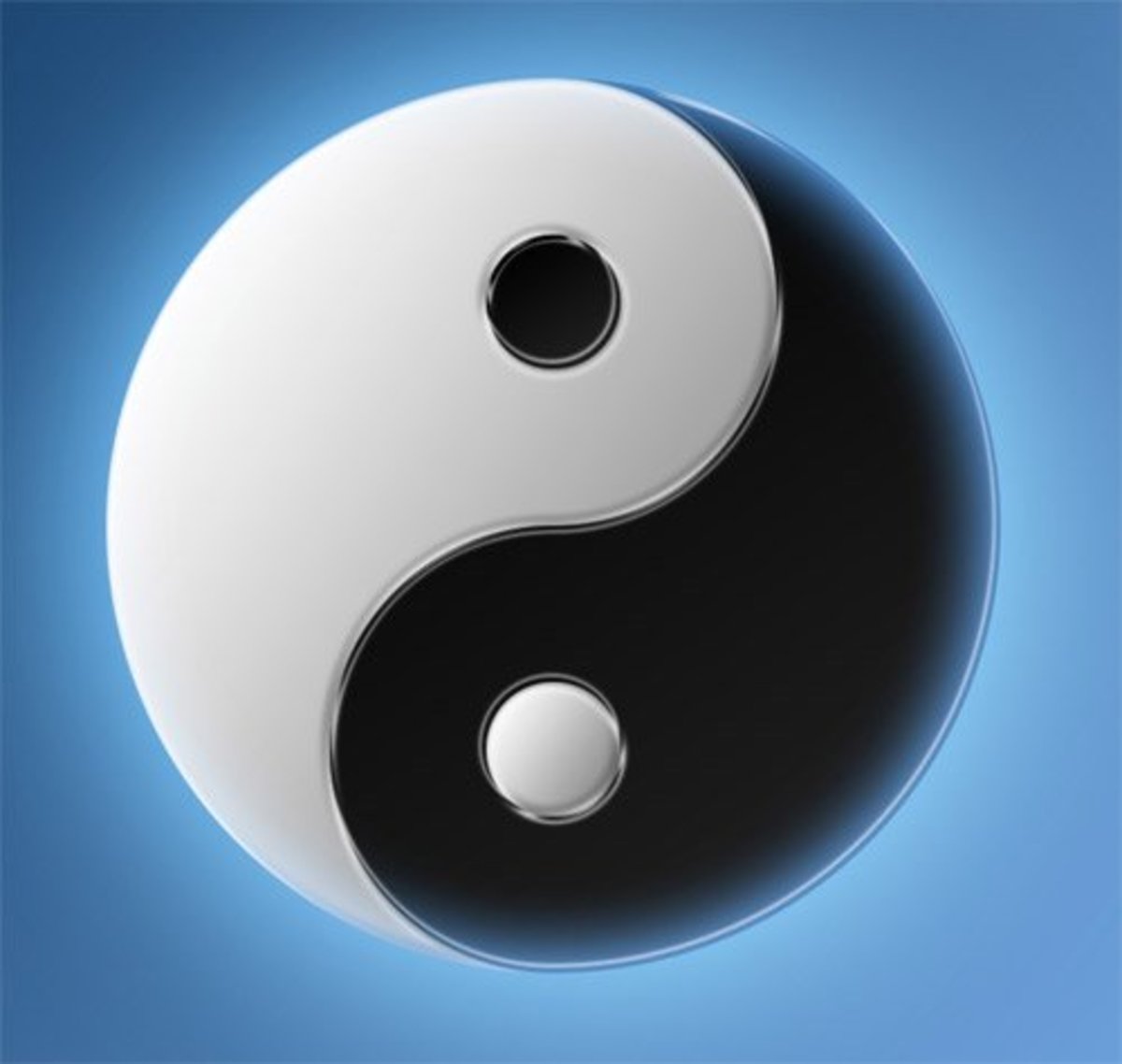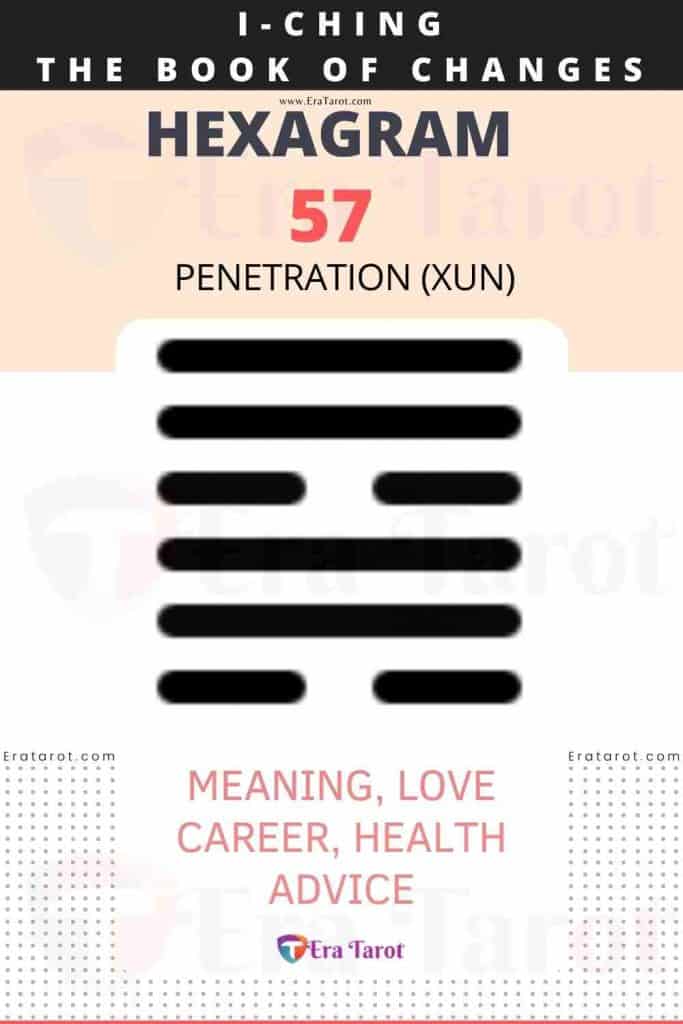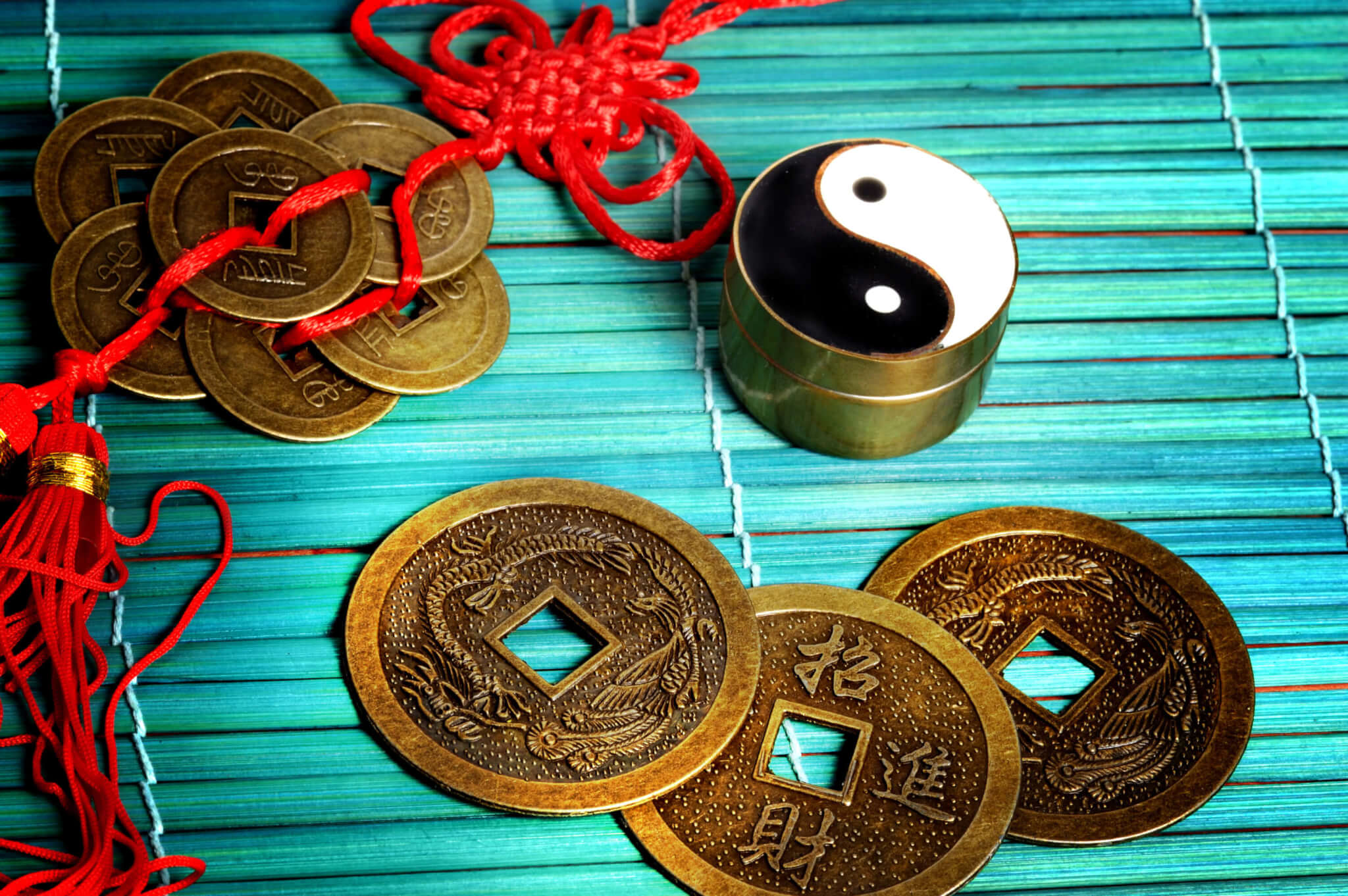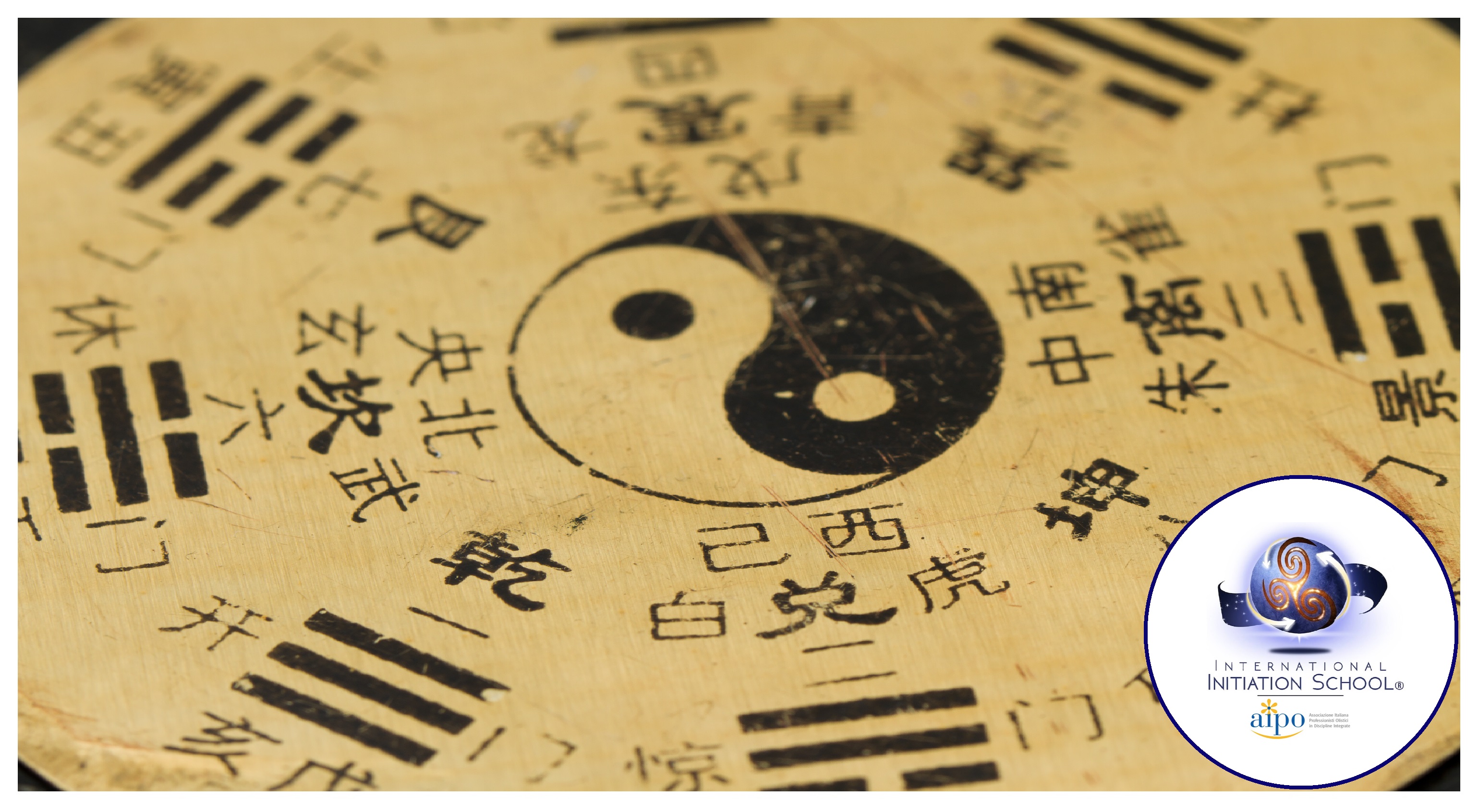
I CHING 57. Sun / Lo Suave (Lo el Viento)
57. Sun / The Gentle (The Penetrating, Wind) Sun is one of the eight doubled trigrams. It is the eldest daughter and symbolizes wind or wood; it has for its attribute gentleness, which nonetheless penetrates like the wind or like growing wood with its roots. The dark principle, in itself rigid and immovable, is dissolved by the penetrating.

I CHING describes the passing of a day or ones lifeStart from Sun
I-CHING Hexagram #57. "The Gentle". Sun, The Soft, Wind. Wood Sun, The Soft, Wind, Wood. This is the hexagram that belongs to the elder daughter; it has the attribute of influence: there is no easier penetration than that of the wind or the roots of a growing tree. The concept of darkness, static and unchangeable, is defeated by light, which.

I Ching Hexagram 57 Sun "Gentle Wind" Zazzle.co.uk
57 Subtle Penetration/Matchmaker SUN | I Ching: Mothering Change u 57 Subtle Penetration/Matchmaker SUN u Act through the Small. Make an offering now and you will succeed. Advantageous to have a direction to go. Advantageous to see the Great People. Spread the mandate to move the people to service. Do not just stir things up.

I Ching Reading A StepbyStep Guide Exemplore
This is a list of the 64 hexagrams of the I Ching, or Book of Changes, and their Unicode character codes. This list is in King Wen order. (Cf. other hexagram sequences.). Hexagram 57 Hexagram 57 is named.

i ching hexagram 57 (xun) meaning, love, career, health
I Ching Online Reading — Sun / The Gentle (The Penetrating, Wind) — I Ching Hexagram 57 by Stefan Stenudd The Gentle, Wind, Wood The Gentle. Success through what is small. It furthers one to have somewhere to go. It furthers one to see the great man. Winds following one upon the other: The image of the Gently Penetrating.

Pin on I Ching cards
The I Ching or Yi Jing (Chinese: 易經, Mandarin: [î tɕíŋ] ⓘ), usually translated Book of Changes or Classic of Changes, is an ancient Chinese divination text that is among the oldest of the Chinese classics.The I Ching was originally a divination manual in the Western Zhou period (1000-750 BC). Over the course of the Warring States and early imperial periods (500-200 BC), it.

I Ching Exploring the History of the Ancient Chinese Divination Practice
Hexagram 57 for career and finance. Avoid rash acts at work, your position is rather vague, use the advice of colleagues at work, they will tell you the best way. Most likely it will be advice from a woman. For 5 months, you will have to abandon the idea of career growth, but for now, just go with the flow.

ICHING > 57. IL VENTO
Someone who bows down and accepts a seal is submitting to the order of things, entering in and receiving his place within it. Then his seal, sign of personal authenticity, endows him with influence and the power to 'make his mark'.

Per Nørgård I Ching Hexagram No.57 ''The Gentle, the
An online version of Nigel Richmond's "The I Ching Oracle". Line image. The active emerging life force (line 1) leaves our inner being unchanged (line 6); our active intuitive feeling is ignored by our identity (lines 2 and 5), while we accept an inactive outer world (lines 4 and 3).

Chinese Astrology, I Ching, and Feng Shui by Raphael Simons Daily
James Legge, tr.Sacred Books of the East, vol. 16[1899] The I Ching, or Book of Changes, is the most widely read of the five Chinese Classics. The book was traditionally written by the legendary Chinese Emperor Fu Hsi (2953-2838 B.C.). It is possible that the the I Ching originated from a prehistoric divination technique which dates back as far.

I Ching Diagrams Contemplating the I Ching I Ching, Taoist, Fifth
This hexagram is formed by the trigram of the Wind over the Wind so the message of slow and dedicated effort is doubled. After a period of uncertainty and wandering, this hexagram can show coming home. Move like the wind - its soft lullaby, sculpting mountains. "As a wanderer, there is nothing that might receive you.

KHRESTÉRION I Ching Hexagrama 57 Sun A Suavidade (O o
Hexagram 57, also known as "Gentle Penetration" or "Wind over Wind," is one of the 64 hexagrams in the ancient Chinese divination text, the I Ching. This hexagram is formed by two wind trigrams, representing the wind's gentle power that can penetrate the tiniest crevices and bring about change. In general, Hexagram 57 suggests a.

I CHING 57. Sun / Lo Suave (Lo el Viento)
What Is I Ching Hexagram 57 All About? Sun is the Chinese name of the I Ching Hexagram 57. This has inner and outer trigrams forming wind over the wind. People call this Hexagram ' ground ' or ' the gentle (the penetrating, wind) ' or ' calculations .'

I Ching de qué trata y cómo nos puede ayudar este oráculo chino Ser
Incorporating I Ching Hexagram 57 into Daily Life. Hexagram 57, symbolising the gentle and the power of softness, imparts insights on the influence of subtlety and persistence. The six lines of this hexagram highlight the impact of gentle persistence. In our world of loud assertions, Hexagram 57 reminds us of the profound influence of quiet.

Goodie's I Ching 57 The Gentle Wind (Hexagram) YouTube
57: Gentle Penetration A subtle penetrating effect is like a soft wind blowing through reeds that are bending gracefully, demonstrating flexibility and endurance. This symbolizes a quiet, relaxed effectiveness in action.

IChing Part 3
57: Gentle Penetration. A subtle penetrating effect is like a soft wind blowing through reeds that are bending gracefully, demonstrating flexibility and endurance. This symbolizes a quiet, relaxed effectiveness in action. A gentle influence is at work; but just as the wind can be ceaseless in its efforts, small forces can add up to produce.